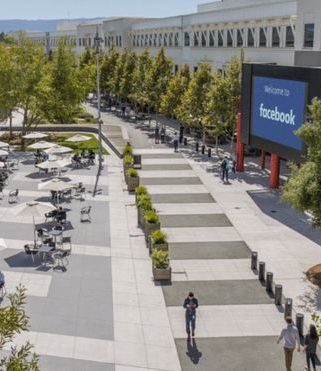Find out the week’s top mobile stories from around the world.
This week.. Facebook to exclude billions from European privacy laws, Smartphone usage set to overtake time spent watching TV in China, social media use increasing despite privacy fears and much more.

Facebook to exclude billions from European privacy laws
BBC
Facebook has changed its terms of service, meaning 1.5 billion members will not be protected under tough new privacy protections coming to Europe.
The move comes as the firm faces a series of questions from lawmakers and regulators around the world over its handling of personal data.
The change revolves around which users will be regulated via its European headquarters in Ireland.
Facebook said it planned clearer privacy rules worldwide.
The move, reported by Reuters, will see Facebook users outside the EU governed by Facebook Inc in the US rather than Facebook Ireland.
Read more…
Report: Smartphone usage set to overtake time spent watching TV in China
Tech Crunch
2018 is the year that smartphone usage eclipses time spent watching TV in China and it’s all down to the growth of digital video platforms, according to a new report from eMarketer.
You’d be forgiven for thinking that this had already happened in China, which happens to be the world’s largest smartphone market, but eMarketer forecasts that the momentous moment is about to arrive.
According to the report, the average adult in China is set to spend 2 hours and 39 minutes per day on a mobile device this year, up 11.1 percent on 2017. Watching TV, meanwhile, is set to fall by two percent to reach 2 hours 32 minutes daily.
Read more…
Report: Social media use is increasing despite privacy fears
The Next Web
The latest in my ongoing series of Global Digital reports for We Are Social and Hootsuite shows that the number of people around the world using social media grew by more than 100 million in the first three months of 2018, reaching almost 3.3 billion by the end of March.
There’s loads of new data to cover in this quarter’s analysis, and I’ve saved some of the best numbers for the end of this article too — a massive breakdown of Twitter users — so go grab a coffee and get comfortable before you begin.
There was plenty of strong growth across all things digital in the first quarter of 2018.
The number of internet users rose by 276 million between January and March, reaching a total of 4.087 billion by the end of the quarter. More than 5 billion people around the world now use a mobile phone, with roughly 6 in 10 of those users owning a smartphone.
Read more…
A flaw-by-flaw guide to Facebook’s new GDPR privacy changes
Tech Crunch
Facebook is about to start pushing European users to speed through giving consent for its new GDPR privacy law compliance changes. It will ask people to review how Facebook applies data from the web to target them with ads, and surface the sensitive profile info they share. Facebook will also allow European and Canadian users to turn on facial recognition after six years of the feature being blocked there. But with a design that encourages rapidly hitting the “Agree” button, a lack of granular controls, a laughably cheatable parental consent request for teens and an aesthetic overhaul of Download Your Information that doesn’t make it any easier to switch social networks, Facebook shows it’s still hungry for your data.
The new privacy change and terms of service consent flow will appear starting this week to European users, though they’ll be able to dismiss it for now — although the May 25th GDPR compliance deadline Facebook vowed to uphold in Europe is looming. Meanwhile, Facebook says it will roll out the changes and consent flow globally over the coming weeks and months with some slight regional differences. And finally, all teens worldwide that share sensitive info will have to go through the weak new parental consent flow.
Read more…
The Kremlin Vs Telegram: What’s Really Going On With The Messaging Service In Russia?
Forbes
After a hearing lasting just 18 minutes, on April 4, Russia’s Federal Service for the Supervision of Telecommunications, known as Roskomnadzor, ordered the immediate blocking of instant messaging application Telegram, created by the controversial Russian entrepreneur Pavel Durov, along with its removal from Apple and Googles app stores.
Aware that growing numbers of people were evading the blockade through proxies or VPNs, the government agency has begun to stifle all ways of connecting to Telegram, wiping out more than 17 million IP addresses from Google and Amazon’s servers (you can see the number grow in real time here), in the process, while disrupting all types of services from online games to mobile apps or cryptocurrency exchange pages. Roskomnadzor’s attempts to block Telegram amount to a denial of service attack on the Russian internet: many sites and services unrelated to Telegram are now blocked as part of this Soviet-style exercise in censorship. Nevertheless, says Durov, Telegram continues to operate with relative normality and the company has not detected a significant drop in user activity in Russia. A relatively small company has left the Kremlin with egg on its face and highlighting concerns for the future of the internet in Russia.
Read more…
How Chinese tourists and mobile payments are changing the way we travel
Post Magazine
While the smartphone market may be slowing down, it is still registering growth, unlike the tablet market, which seems to be in a perpetual decline without any signs of revival any time soon. According to the latest data from market research and analysis company, International Data Corporation (IDC), the tablet market shrunk by over thirteen percent in the year-ending quarter compared to the same period in 2014, thereby capping an entire year of decline in the tablet market for the very first time since the category went mainstream earlier this millennium.
Back in late October, IDC had reported about tablet shipments declining for the fourth straight quarter, so this marks the fifth quarter in a row that the market has seen a downturn. Amidst all this gloom and doom, the one silver lining, however, comes from the growing market for ‘detachables’, 8.1 million units of which, were reportedly shipped last year.
Read more...
Mobile apps transmit unencrypted user data due to insecure SDKs
ZDnet
Advertising is critical to many online and app-based services. Without advertising in free versions, developers miss out on crucial revenue which is required for support and improvements.
An easy way to integrate advertising into mobile applications is through the use of SDKs. These development tools, often free and offered by third-parties, can collect user information to display relevant and targeted ads — but non-secure SDKs can impact the security of applications which use them.
On Tuesday, Kaspersky Lab researchers presented an investigation into insecure SDKs at the RSA Conference in San Francisco.
Read more…
The future of a mobile app in the next decade
The Drum
The average UK consumer has 36 apps on their device. Yet, there is a harsh reality that many apps get removed after first use, which can often be down to poor user experience and latency issues. The Drum spoke with Ian James, international general manager, Verve Mobile, to talk about how voice assistants are now creating innovative ways for brands to have direct relationships with consumers.
So, what is in store over the next decade? The following 10 years of apps will see artificial intelligence working in collaboration with consumers, paving way for more trust between the user and their device.
What will apps look like with streaming/non-downloads/voice interface/AR/VR?
Read more…
Facebook among tech firms to sign ‘digital Geneva convention’
Guardian
More than 30 global technology firms have signed up to a “digital Geneva convention”, committing never to partake in cyber-attacks against individuals or businesses.
The signatories to the “cybersecurity tech accord”, which include Facebook, Microsoft, Arm and Trend Micro, are largely from the US and western Europe, and do not include companies from the countries seen as most responsible for the recent escalation of digital hostilities, such as Russia, North Korea and Iran.
Equally notable by their absence are Google, Apple and Amazon. None gave a reason for not signing up.
The tech accord commits companies to responsible action in four key areas: strengthening defensive capabilities, refusing to provide offensive ones, helping customers and users defend themselves, and working collectively to minimise the potential for damaging cyber-attacks.
Read more…
Google will plug ‘Chat’ into Android to compete with iMessage
Engadget
Stop us if you’ve heard this one before: Google is planning to make another mobile messaging push. A report by The Verge shows off its next effort, simply called Chat. What Chat isn’t is yet another app; instead, it’s a brand name for Universal Profile features in RCS, a standard meant to replace old-school SMS texting with iMessage-like features (minus end-to-end encryption, unfortunately) for everyone. Earlier this year Google said it had 43 carriers and device makes signed on to support RCS, while an updated list shows 55 carriers, 11 OEMS and two operating system distributors: Google and Microsoft (but not Apple, yet).
As a result, Chat’s new features will live in the Android Messages app (and require some synchronization, perhaps with QR codes for access on non-phone devices) and use data instead of SMS on your phone plan. Similar to iMessage, users will simply use the Messages app to send a text, and if the person on the other end has support for RCS, they’ll get the richer version of the message automatically, and if not, they’ll get an SMS.












